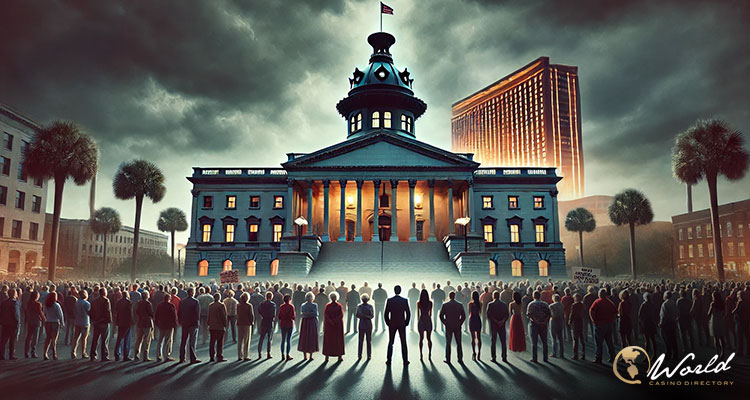Religious organizations across South Carolina have joined forces to oppose newly proposed legislation that would legalize various forms of gambling in the state, including horse race betting, sports wagering, and casino development. The proposals have reignited a long-standing cultural and economic debate in the Palmetto State, with vocal opposition from church leaders and conservative lawmakers.
A coalition that includes the Catholic Diocese of Charleston and the South Carolina Baptist Convention issued a joint letter voicing their objection to the bills under consideration. Their primary concerns center around the potential for increased gambling addiction and the social consequences that could disproportionately impact low-income families.
Concerns Center on Addiction and Social Harm
The letter argues that legalizing gambling would pose a danger to South Carolina families, especially those residing in economically disadvantaged communities. Critics fear the legislation targets vulnerable populations, suggesting that casinos could be strategically placed in underdeveloped counties to attract those most susceptible to gambling-related harm.
“These are systems that feed on desperation, they promise hope, but they deliver harm,” said one opponent during public testimony, according to Live 5 News WCSC. “They’re built to profit from loss and disguise addiction as opportunity.”
Palmetto Family Council spokesperson Justin Hall emphasized that the financial benefits of legal gambling are likely to be outweighed by the societal costs. “What you could see in an increase in state tax revenue, you’re also going to be paying more for public safety,” Hall said. “Anything we think would be a positive… is going to be offset by these rising peripheral costs or some bottom line costs.”
Casino Development Tied to Economic Stimulus Plan
At the heart of the legislative package is House Bill 4176, also known as the “I-95 Economic and Education Stimulus Act.” This bill proposes the creation of a South Carolina Gaming Commission, which would be tasked with licensing and regulating casinos. The legislation stipulates that casinos could only be built in specific areas along the I-95 corridor that meet low-income and underdevelopment criteria.
Supporters of the bill, including some local business leaders and residents, argue that it presents an opportunity for economic revitalization in regions that have struggled for decades. One proposed project, led by developer Wallace Cheves, would transform the defunct Santee Mall in Orangeburg County into a casino resort designed with local aesthetics in mind.
“It’d be something that is locally done in a locally tasteful way,” said Cheves, who has owned the 40-acre site since 2017. The Santee Development Corporation, which he heads, envisions a lodge-style casino rather than a flashy, neon-lit complex.
Supporters Highlight Potential for Job Creation and Education Funding
Advocates for the casino measure believe that such developments could generate substantial employment opportunities and stimulate local economies. Orangeburg Chamber of Commerce President James McQuilla told lawmakers, “The schools will benefit; your local economy and restaurants will benefit. Whenever you have jobs that are there for local individuals, then you’re going to see a decrease in crime.”
Orangeburg resident Hayes Gainey echoed the sentiment, saying, “We can eradicate a whole lot of poverty by allowing this casino to come to Santee. Give hope, where there’s a lot of people who’ve been in despair.”
Despite the potential benefits, the bill remains in legislative limbo. It has yet to move beyond committee review stages, and it faces stiff resistance from both lawmakers and the governor.
Governor McMaster Pledges to Veto Gambling Legislation
Governor Henry McMaster has reiterated his unwavering opposition to gambling in the state, calling it detrimental to South Carolina’s culture and economy. “There are better ways to make money,” he declared during a recent public statement.
The authors of HB4176 acknowledge that casino gaming may conflict with traditional South Carolina values, but they argue that the unique economic circumstances along I-95 justify a targeted approach. “The General Assembly finds that casino gaming is not consistent with nor compatible with the economic, labor, or tourism industry profile for most communities in South Carolina,” the bill reads. “However, casino gaming in these counties is consistent and compatible with their economic… profiles.”
Still, any bill that reaches the governor’s desk will face a near-certain veto. Overriding such a veto would require a two-thirds majority vote in both chambers of the General Assembly—a tall order given the divided response among lawmakers and citizens alike.


